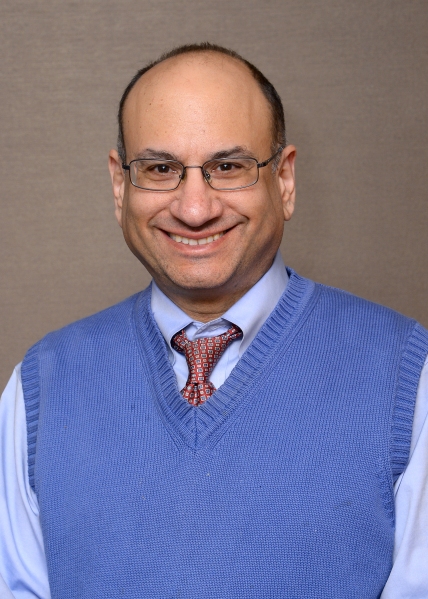Sovern Writes Newsday Essay; Speaks at Berkeley Conference; Is Quoted in Forbes, Congressional Quarterly, Bloomberg Law, and NYLJ

Professor Jeff Sovern authored a guest essay in Newsday, NYS Consumer Protection Bill Provides Needed Safeguards. The essay argues that New York’s law against deceptive practices should be broadened to provide New Yorkers the same kinds of protections consumers in many red states receive.
Sovern also spoke at the Berkeley Law School Consumer Law Conference, held in March.
Forbes quoted him in a March 28 article titled Federal Government’s Crackdown On Broadway Ticket Service Fees Not All It’s Cracked Up To Be as follows:
“If [Broadway] ticket sellers extend credit directly, as would be the case, for example, if they issue their own credit card, then the Bureau would have jurisdiction over them,” explained St. John’s law professor Jeff Sovern. But, he said, “I can’t think of an argument for saying that that includes businesses that do no more than sell tickets in exchange for a payment via credit or debit card,” such as the Broadway ticket sellers Ticketmaster and Telecharge.
In addition, Sovern noticed that “[t]he Bureau’s Request for Information says it is ‘interested in receiving any comments relating to fees in consumer finance.’” The scope of the government’s inquiry is limited to the fees that financial institutions charge, such as penalty fees like overdraft fees and convenience fees like wire transfer fees. “Banking is a bastion of many of these fees,” commented Chopra in an interview, observing that, “in many cases, these are fees where there’s not even a service provided or where the bank or financial institution doesn’t even do any work.”
“It may be that [the Bureau’s director] mentioned ticket sellers only as an example of an industry in which there are added fees so that people would have a clearer understanding of what [he] meant, rather than as an example of a business coming within [the Bureau’s] jurisdiction,” professor Sovern stated.
“But, that doesn’t mean that ticket sellers can relax,” he warned.
“The Federal Trade Commission, where the [Bureau’s] director, Rohit Chopra, was formerly a commissioner, would have jurisdiction over unfair fees in the ticket selling industry, as would state regulators,” professor Sovern continued. “Those other entities may decide to look into the matter, especially if the Bureau receives negative comments about fees charged by ticket sellers,” he said.
* * *
“Hidden fees raise serious questions about market fairness,” stated professor Sovern.
“Classical economics presupposes that consumers will make efficient decisions if they know what prices they will pay, but hidden fees make that difficult and so may lead consumers to pay more for a product than they initially intend to,” he explained. * * *
Congressional Quarterly quoted Sovern in an article titled Experts debate if CFPB credit card late fees report presages rule changes:
Jeff Sovern, a St. John’s University School of Law professor who’s an expert on consumer protection law and a frequent commenter on the workings of the CFPB, said he anticipates the bureau will seek to change the rules on credit card fees.
“If the market doesn’t protect consumers, then the Bureau should step in, as Congress has authorized it to do,” Sovern said in an interview. “One way the Bureau could do that is by amending the existing regulation to lower the amount that lenders may safely charge for late fees.”
He said the fact that many smaller banks charge less than the existing maximum suggests the maximum is higher than it needs to be to cover lenders’ costs when consumers make late payments.
“That suggests that larger issuers are using late fees as a profit source in a way that smaller lenders are not,” Sovern wrote in an email. “Consequently, the Bureau could reduce the existing ceiling and still have it be reasonable.”
Sovern was also quoted by Bloomberg Law. An April 13 article, Fintechs Tout Lower Costs as CFPB Takes Aim at Bank ‘Junk’ Fees, explained:
Banks could elect to go beyond the CFPB’s fee thresholds by arguing that higher fees are “reasonable and proportional” under the CARD Act, said Jeff Sovern, a professor at St. John’s University School of Law.
But it might not be worth the fight, he said
“Consequently, credit card issuers would probably lower their late fees to whatever the Bureau says the safe harbor amount is,” Sovern said.
Finally, an April 15 New York Law Journal article, ‘Entire Supply Chain in New York’ Investigated to Fight Possible Fuel Price Gouging, opened:
“A St. John’s University law professor indicated he wasn’t surprised by New York Attorney General Letitia James‘ investigation of potential gouging of gasoline prices.
A state probe of the oil industry got underway Thursday, attorney general spokeswoman Halimah Elmariah said Friday, confirming a report by CNN.
This isn’t the first time James has taken aim at price-gouging, nor is it the first time a New York AG has studied gouging of gas prices, said Jeff Sovern, professor of law at St. John’s.
Former Attorney General Eric Schneiderman did so in 2011 in the wake of Tropical Storm Irene, and even took enforcement actions against some gas stations, Sovern remembered.
“Many consumers hate price-gouging, so much so that some retailers resist the urge to engage in it when items are in short supply because they don’t want to alienate their customers,” Sovern said. “Attorney General James is said to hate bullies, and pursuing price gougers would be consistent with that.”
